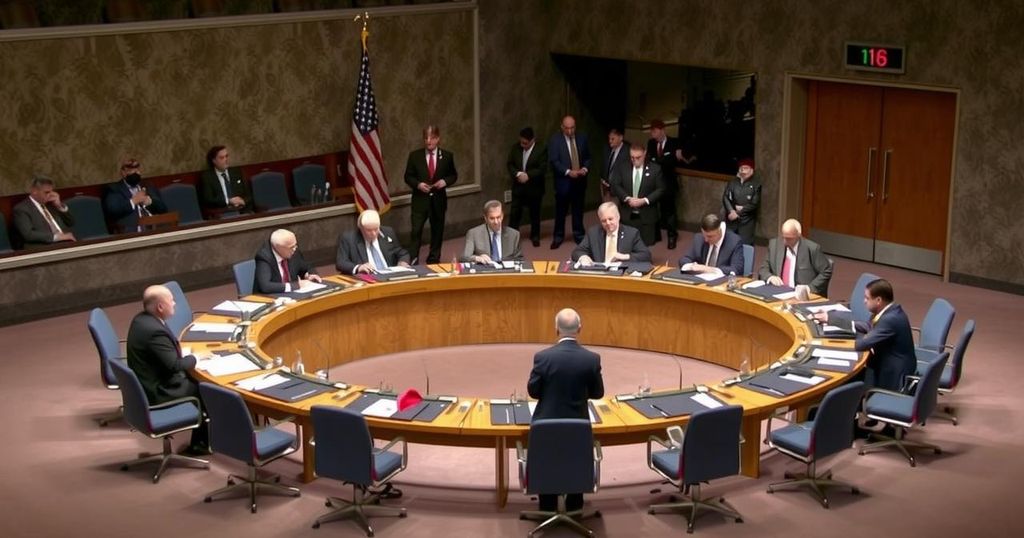On January 1, 2025, Pakistan began its eighth term as a non-permanent member of the United Nations Security Council, following Japan. The term will last until December 31, 2026, with Pakistan presiding over the UNSC in July 2025. The national focus will be on addressing global challenges, combating terrorism, and advocating for international action regarding the Kashmir conflict.
On January 1, 2025, Pakistan officially began its two-year term as a non-permanent member of the United Nations Security Council (UNSC). This marks Pakistan’s eighth term on the 15-member council, following Japan as the representative from Asia. Ambassador Munir Akram has reiterated Pakistan’s commitment to assume an “active and constructive” role in addressing pressing global issues.
In its recent election, Pakistan received 182 votes in the 193-member General Assembly, exceeding the necessary two-thirds majority. The term will extend from January 1, 2025, to December 31, 2026. Notably, Pakistan is set to preside over the UNSC in July 2025, where it will oversee the council’s agenda. Moreover, the nation will also participate in the Islamic State (ISIS) and Al Qaeda Sanctions Committee, tasked with designating terrorist groups and enforcing sanctions.
Historically, Pakistan has had several prior terms on the UNSC, specifically from 2012-13, 2003-04, 1993-94, 1983-84, 1976-77, 1968-69, and 1952-53. Ambassador Akram has underscored the current geopolitical challenges, characterized by fierce rivalries among major powers, ongoing conflicts in various regions, and a burgeoning arms race. Pakistan aims to engage actively in promoting peace, resolving disputes, and counteracting terrorism during its term.
Additionally, as significant regional issues persist, such as the Kashmir conflict and political instability in Central and West Asia, Pakistan intends to advocate for the Kashmir issue and call for tangible actions from the global community. Ambassador Akram emphasized these challenges and Pakistan’s focus on fostering multilateral cooperation to combat terrorism and enhance security on a global scale.
Pakistan’s recent ascension to the UNSC as a non-permanent member highlights the nation’s ongoing commitment to international diplomacy and global security. This particular tenure is significant as it allows Pakistan to participate in critical discussions regarding global challenges, including terrorism and regional conflicts. The UNSC plays a pivotal role within the United Nations framework, tasked with maintaining international peace and security. Given the geopolitical climate today, marked by tensions in various regions, Pakistan’s position enables it to advocate for cooperation and the resolution of disputes.
In conclusion, Pakistan’s two-year term as a non-permanent member of the UNSC represents a strategic opportunity for the nation to influence global governance. With a focus on promoting peace and addressing critical issues such as the Kashmir conflict, Pakistan aims to undertake an active role under the leadership of Ambassador Munir Akram. As it engages with various international dynamics, Pakistan’s contributions will be essential in navigating the complexities of global security challenges.
Original Source: currentaffairs.adda247.com






